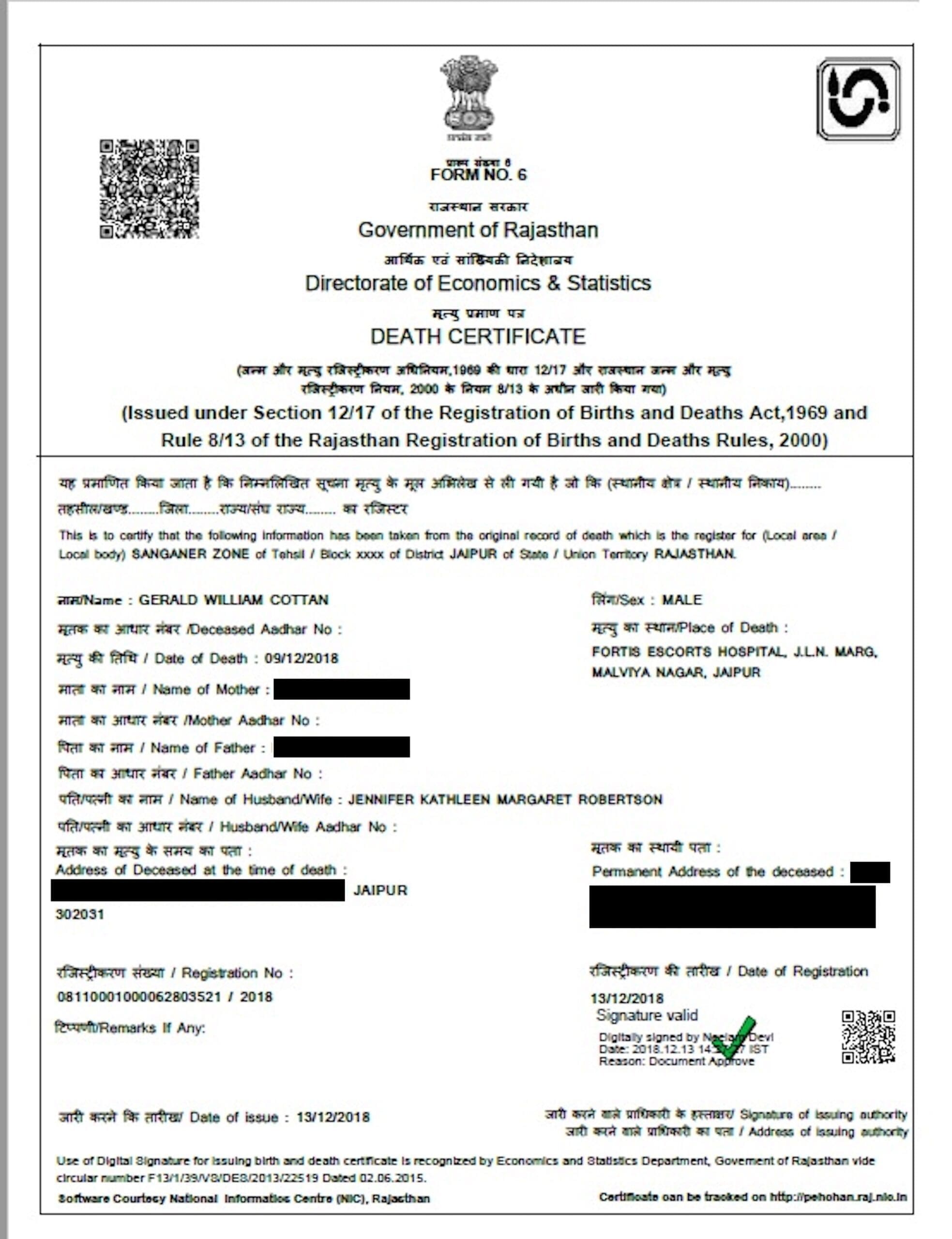
Background
Many people might believe that applying for a death certificate for their deceased loved ones is a futile exercise. Their religious pursuits might often lead them to believe that death discharges a person from all his worldly commitments. Though the same might be true in spirituality, the mere fact of death of a person does not prima facie discharge him or her from his commitments at law. An authentic, death certificate issued by the Registrar of Births and Deaths is needed for the same.
This blog seeks to cover all the essential points related to the significance of the death certificate, its application for various purposes and the procedure for its issuance.
Introduction
The Registration of Births and Deaths Act, 1969 is the governing legislation for grant of both, birth and death certificates. The post of a Registrar has been specifically created for this purpose only. The Registrar is authorized and indeed it is her duty to issue a birth certificate and a death certificate to all citizens falling within his local jurisdiction.
In case of deaths, it is usually the Registrar in whose jurisdiction the death occurred, who is supposed to issue to the next of kin of such person.
Who can apply for a Death Certificate?
Various States’ regulations differ on who can apply for a death certificate. While in some states the application for a death certificate can be made by any member of the society, in others, the applicant must prove a conjugal or sanguineous relation with the deceased for her to be able to obtain a death certificate.
Timeline for Application of a Death Certificate
While different State laws may differ on this aspect, most states across India have prescribed a time period of three weeks or 21 days for the application of the death certificate to be made. This time period, however, does not work in the nature of a limitation period. If the family members of a deceased person realize that such an application needs to be filed, they can still apply for the same, however, the payment of a late fee charge will now be applicable.
Significance of the Death Certificate
The death certificate is a rather important document. Apart from mentioning the date, place and time of birth, it also mentions the cause of death. This is very important because the cause of death is entered on the death certificate after the post mortem report and results of the investigation done by the police have come in. This document can further be used for several purposes in future. In proceeding before a court of law in the territory of India, if the death certificate is produced before it, the court, under the Indian Evidence Act, 1872, shall presume its contents to be true unless satisfactorily proved to be untrue by way of conclusive proof. Therefore, the weightage of the death certificate in terms of evidence is considerably high.
Application of the Death Certificate for various Purposes
The death certificate is a document which holds significance for various purposes post the death of person and hence, it has diverse application. There are various kinds of proceedings which follow the death of a person, both legal and social. The family of the deceased is likely to arrange for a funeral or burial ceremony (depending on what religious beliefs the deceased and his family members carry). Likewise, if the person has not left a testamentary will, his estate shall have to be divided among his heirs as per the law applicable on the deceased, based on what religion he belonged to. For all these proceedings, a death certificate is essentially required. The management board of the crematorium is going to ask for a death certificate. Similarly, the court will also ask for a death certificate before beginning the proceedings for division of estate of the deceased, inheritance etc. Also, if the death was caused due to an untimely incident such as an accident, the insurance company is definitely going to ask for a certified copy of the death certificate prior to handing over the premium amount to them. Also, if the deceased was married and his or her spouse now wants to get married again, the registrar for marriages is certainly going to ask the spouse for a certified copy of the death certificate prior to granting him or her a new marriage certificate.
Issuance
As mentioned above, a death certificate is issued by the Registrar of Births and Deaths. The application form needs to be filled in by the family members along with the filing fee of about INR 30. The department then issues a certified copy of the death certificate to the applicants.
Conclusion
Therefore, the death certificate is a really important document and it is the responsibility of every adult citizen of India to make sure that the death certificate is applied for if a person in their family happens to die.

Absolutely! It’s also important to keep at least one copy of the original death certificate in case others get lost.